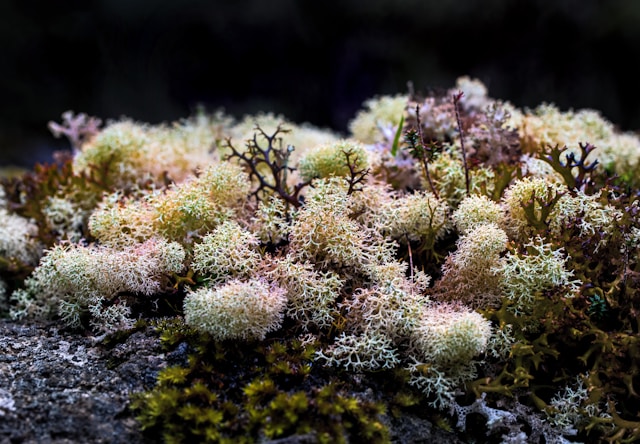


Some promote sea moss—a spiny edible seaweed—as the secret to glowing skin, effortless weight loss, and improved gut health. It has become a trending topic among celebrities and TikTok users.
Social media is filled with recipes for sea moss coffee, homemade face masks, and videos of the #SeaMossChallenge, where influencers gulp down spoonfuls of slimy sea moss gel, which can sometimes smell unpleasant.
But is there any truth to the claims behind this so-called superfood, or is it just another health trend?
What is Sea Moss?
Sea moss, also known as Irish moss, is a type of red seaweed that grows along the rocky coasts of Ireland and other parts of the Atlantic Ocean. It also thrives in warm waters in Asia, South America, and Africa.
Humans have been harvesting and consuming sea moss for about 14,000 years, with evidence of its medicinal use in China as early as 600 BCE, according to the International Food Additives Council.
This plant produces a substance called carrageenan, which food manufacturers use as a thickener and stabilizer in products like ice cream, chocolate milk, and jellies.
Like many seaweeds, sea moss is rich in nutrients, including iron, magnesium, iodine, and vitamins, which contribute to overall health, according to the British Nutrition Foundation.
Sea moss is widely available online in raw and dried forms, but the most popular products on social media include capsules, powders, gels, and gummies.
The global sea moss market is expected to surpass $3 billion by 2032, driven by high demand in China, according to data from Polaris Market Research.
Clear Skin?
In a post about managing psoriasis, a chronic inflammatory skin condition, reality TV star Kim Kardashian mentioned she drinks sea moss smoothies as part of her plant-based diet.
But what does science say?
Sea moss contains vitamins A and E, which the UK’s National Health Service (NHS) highlights as important for skin health. It also includes antioxidants such as polyphenols, which have “proven anti-inflammatory effects,” according to the NHS.
Leah De Souza-Thomas, a UK-based qualified biomedical scientist and member of "Nutrition Resources," a database of certified nutrition experts, said there’s limited direct evidence that consuming sea moss improves skin condition or appearance.
She told the BBC that studies showing benefits for skin have mostly focused on topical treatments—like creams and ointments—rather than ingesting it.
Weight Loss
Diet culture is widespread on TikTok. In 2022, a study by the University of Vermont found 9.7 billion videos under the hashtag #weightloss.
Users promoted sea moss as a superfood that supports weight loss, but Bridget Benelam, a spokesperson for the British Nutrition Foundation, says there’s no evidence to classify it as a true superfood.
She told the BBC: “We know very little about any specific benefits of consuming sea moss for human health.”
Rachel Isaacs, a UK-registered nutritional therapist, says sea moss is high in fiber, which can contribute to a feeling of fullness.
However, she adds, “There’s not enough evidence to suggest it supports weight loss.”
Potential Risks
Experts told the BBC there are some risks associated with sea moss consumption.
Sea moss contains high levels of iodine, which can lead to thyroid issues if consumed in excess.
Benelam, of the British Nutrition Foundation, stated: “The recommended amount on the packaging should not be exceeded.”
She also pointed out that sea moss, like other seaweeds, can absorb heavy metals from the water depending on where it grows.
The European Food Safety Authority notes that accumulating such metals in the body can lead to harmful effects over time.
Still, De Souza-Thomas emphasized that consuming sea moss in small amounts is safe as part of a healthy diet.
But it may not be the miracle health solution TikTok users claim.
She added: “It’s best considered as a supplement—not a substitute—for a diverse diet rich in vegetables, fruits, whole grains, high-quality protein, and healthy fats.”
Source: BBC Arabic